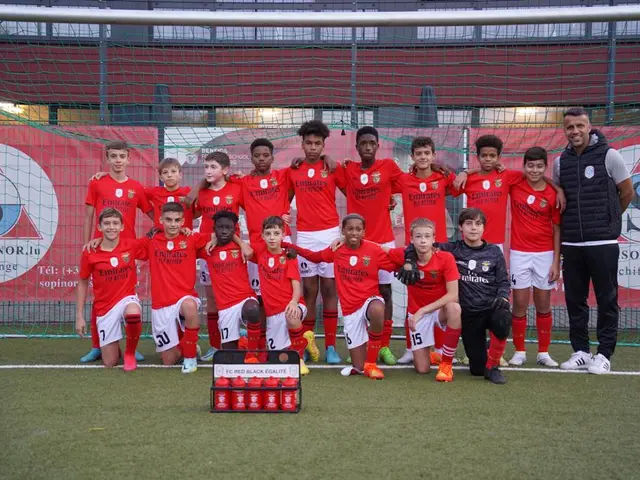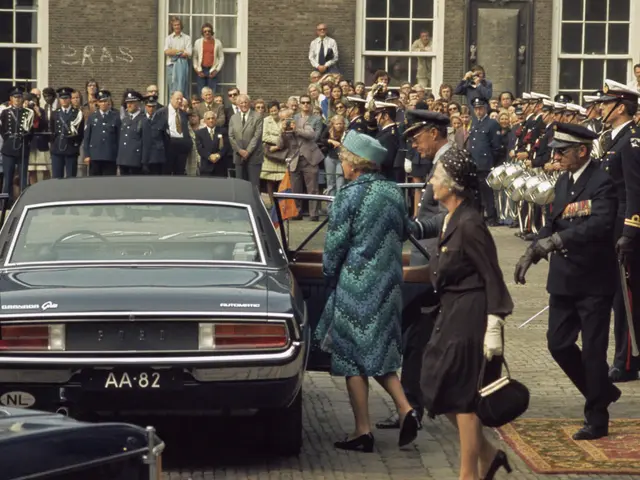Debating the Demands: Concerns Over the 2025 FIFA Club World Cup Intensify
European football clubs express reservations over the FIFA Club World Cup format
Gear up for the highly anticipated, global showdown, as the expanded Club World Cup kicks off on June 14 in Miami. However, the glamorous tournament has stirred debate, focusing on player wellbeing, jam-packed schedules, and sports administration concerns.
European heavyweights have voiced apprehensions, with stellar managers like Pep Guardiola and Jürgen Klopp expressing concerns about the brutal demands on athletes. Manchester City’s Guardiola highlighted the players' lack of recovery time, while Klopp, Liverpool’s charismatic coach, dismissed the tournament's timing, calling it "useless" and decrying the absence of a summer break. The players' union, FIFPRO Europe, has gone on record with legal complaints against FIFA, denouncing the new competition as needlessly adding to the already chaotic football schedule.
FIFA's vision is to elevate the tournament to rival the esteemed Champions League, with a vast $1 billion prize pool and soccer juggernauts like Real Madrid, Manchester City, and Paris Saint-Germain ready to dice and conquer. However, the grand ambition faces mounting resistance, especially from European leagues and players' unions, who question the tournament's long-term sustainability.
Despite European reservations, enthusiasm for the tournament rages across other continents, particularly in Latin America. Brazil, Argentina, and Mexico have reported a spike in ticket sales outside the U.S., suggesting a massive appetite for a global spectacle that offers rare opportunities for football titans to clash on the international stage.
The tournament's fate remains shrouded in uncertainty, with legal challenges and threats of boycotts hanging in the balance. Javier Tebas, the steadfast president of Spain's La Liga, has even called for the competition's outright cancellation, while Real Madrid, the tournament's premier club in past years, only confirmed its participation after internal deliberations and rumors of a potential boycott.
As Manchester City's Pep Guardiola and Liverpool's Jurgen Klopp lead the charge on the wellness front, the eyes of the football world fix on Miami, eager to witness whether this audacious new sports venture can live up to FIFA's dreams or will crumble under the relentless intensity of global competition.
Did you know? Since the announcement of the tournament's expansion in December 2023, concerns over fixture congestion, increased risks of injury, and long-term health issues have escalated significantly.
Football enthusiasts may question the impact of such a congested tournament on player performance and their long-term careers. Additionally, the selection of teams based on commercial interests, rather than sporting merit, has reignited debates over fairness and transparency.
Critics argue that the tournament's scheduling might conflict with existing European competitions, potentially affecting the integrity and competitiveness of domestic leagues. It is essential to address these concerns to guarantee a harmonious and sustainable football landscape.
Financing for the expanded Club World Cup could see a boost with a $1 billion prize pool, as the tournament aims to rival the Champions League in stature. However, with concerns over player well-being and fixture congestion growing, the decentralized finance (defi) community may want to explore the development of a media-friendly platform that allows fans to contribute to player welfare funds.
European leagues and players' unions have cited concerns about the tournament's scheduling, arguing that it could negatively impact player performance and long-term careers. As discussions regarding the football landscape's sustainability unfold, it would be appropriate to bring in stakeholders from various finance backgrounds to collaborate and propose viable solutions that prioritize player welfare while maintaining competition integrity.
Furthermore, the selection of teams based on commercial interests, rather than sporting merit, has sparked debates over fairness and transparency within the European leagues and beyond. In light of these discussions, the market for sports governance could provide opportunities for organizations to address these issues, ensuring a balanced, fair, and sustainable sports ecosystem for all parties involved.








